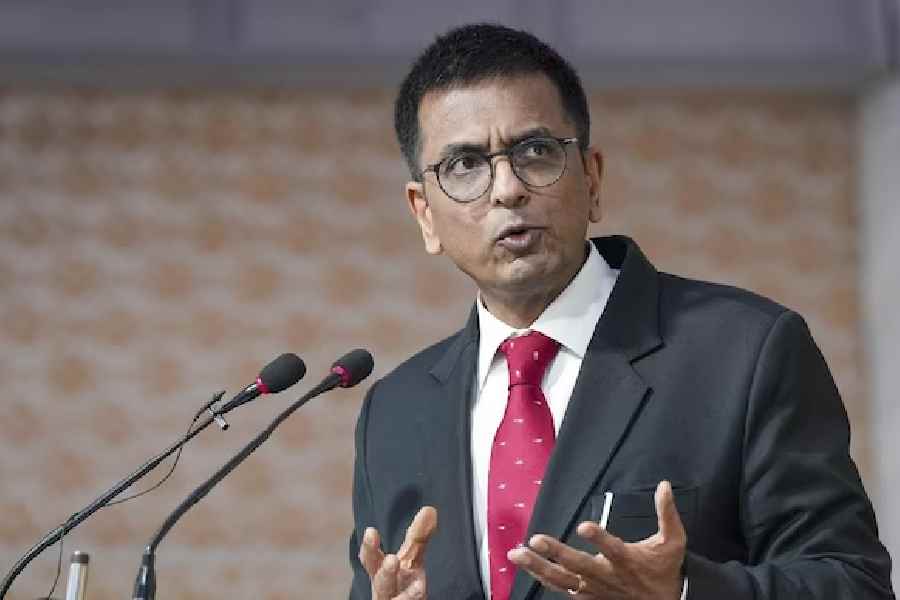The Supreme Court on Wednesday referred to a seven-judge bench the constitutional validity of the immunity enjoyed by MPs and MLAs from criminal prosecution for corruption even if they accept bribes for voting or making speeches in the House.
A five-judge bench had in the 1998 P.V. Narasimha Rao case ruled that these elected representatives have such a shield. Another five-judge bench headed by Chief Justice of India D.Y. Chandrachud on Wednesday referred the matter to a seven-judge bench, stating that it involves public morality. The court brushed aside the views of attorney-general R. Venkataramani and senior advocate Raju Ramachandran, appearing for JMM leader Sita Soren, that there was no need to refer the matter to a larger bench.
The bench headed by Justice Chandrachud was dealing with a reference made in 2019 by a three-judge bench of then CJI Ranjan Gogoi and Justices P.C. Pant and A.M. Khanwilkar to place before a seven-judge bench the correctness of the 1998 verdict.
On Wednesday, Venkataramani and Ramachandran argued that the matter relating to Sita Soren did not involve any constitutional law and it could be decided on the facts of the case by a three-judge bench.
Sita had filed the appeal against a Jharkhand High Court order dismissing her plea challenging her criminal prosecution by the CBI, which had in 2012 charged her for taking a bribe as a legislator to vote in a Rajya Sabha election.
Amicus curiae and senior advocate P.S. Patwalia and senior advocate Gopal Sankaranarayan supported the plea for referring the matter to a seven-judge constitution bench on the ground that MPs and MLAs cannot enjoy any higher stand of immunity from prosecution for corruption than the general public.
“We must also not ignore that it also involves public morality on the part of our elected representatives. If that is the case, we should not defer our decision to some uncertain day in the future,” CJI Chandrachud said.
The bench, which included Justices A.S. Bopanna, M.M. Sundresh, J.B. Pardiwala and Manoj Mishra, said: “We are of the considered view that the correctness of the judgment in P.V. Narasimha Rao vs State needs to be considered by a seven-judge bench.”
Articles 105(2) and 194(2) provide immunity to lawmakers for acts done in the discharge of their legislative functions.











